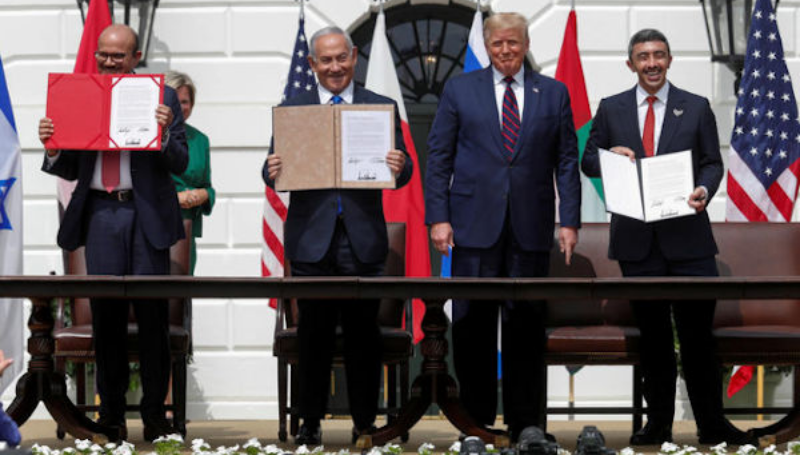Martin Sherman
JNS, Apr. 16, 2025
“Warm relations are mirrored in a generally benign relationship with its Jewish community in the country.”
“The Abraham Accords were the greatest foreign policy accomplishment of Trump’s first administration; he has made it clear that his new administration will seek to expand them.”
— “Forbes,” March 8, 2025
Two recent media reports underscored the emerging international stature of the Caucasian republic of Azerbaijan and its ties to Israel.
The first relates to the growing involvement of Azerbaijan’s State Oil Company (SOCAR) in Israel’s energy sector, entailing SOCAR’s first drilling operations outside of Azerbaijan.
The second related to a visit by President Donald Trump’s Middle East envoy Steve Witkoff in Azerbaijan. This took place after endorsement by Israeli Prime Minister Benjamin Netanyahu and a group of prominent rabbis. The rabbis, including the founder of the Simon Wiesenthal Center, urged including Azerbaijan in the Abraham Accords framework and for the bolstering of a trilateral alliance between Washington, Jerusalem and Baku.
Some months ago, the value of such an axis was raised in a previous column of mine, and recognition of its merits, then enumerated, appears to be growing.
Arguably, one of the most fundamental traits of international relations is its inherent uncertainty. Indeed, it is a field where today’s truth is often stranger than yesterday’s fiction.
To illustrate the point, consider anyone in the early 1980s suggesting that:
- Within less than a decade and a half, the mighty USSR would disintegrate;
- The Warsaw Pact, once a formidable alliance confronting NATO, would crumble, with some of its members even joining the ranks erstwhile foes as part of NATO;
- Then, impoverished nations, such as China and India, would become industrial and commercial powerhouses, with the former beginning to challenge America’s global economic hegemony;
- There would be a massive shift of industry and commerce to Asia from the West…. SOURCE


